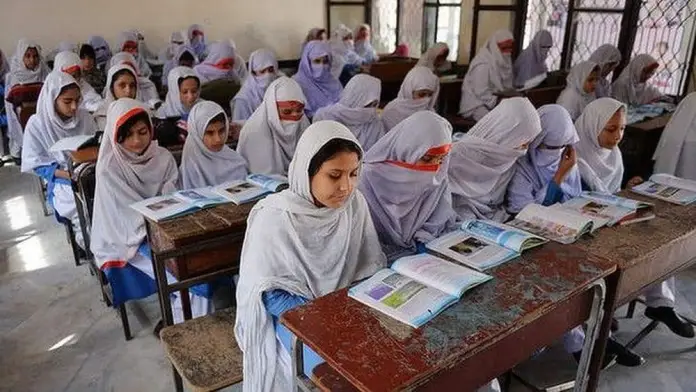Enter a school in Pakistan and often, you see wall displays communicating messages about good character and values. But when you look at the curriculum of most schools you discover a void: ethics as a subject is missing from classrooms. The question then is how can we bring ethics into schools in ways that encourage children to develop good character while simultaneously learning how to reason about difficult issues?
At school level, ethics education should incorporate discussion on issues such as bullying, honesty, civic responsibility, environmental degradation, and the dilemmas associated with technological and scientific advancement. Only then can students think critically about social issues and recognize the ethical dilemmas that we encounter in our daily lives. For instance, why it may be better to fail honestly than to cheat to get the grade we want? Or why sharing someone’s pictures online to ridicule them can amount to cyberbullying?
Moral education helps one to distinguish between right and wrong. It gets reflected in one’s personality. It helps in building a good personal and professional life. It helps to eliminate problems like violence, dishonesty, jealousy etc from one’s life. Moral education means an ethical education that helps an individual choose the right path in life. It consists of some basic principles such as truthfulness, honesty, charity, hospitality, tolerance, love, kindness and sympathy. The eight moral characteristics are diligence, frugality, honesty, discipline, politeness, cleanliness, unity and generosity.
Ethics is about character, the sum of qualities that defines a person. Ethical Education involves exploring different worldviews and beliefs, considering ethical dilemmas and the process of ethical decision making. It invites students and teachers to engage with issues and problems facing society and aims to develop the skills of critical thinking, discussion and debate.
The main purpose of education is to create skills, grasp knowledge and spread awareness. It is a fact that educated persons would display civilized behavior, decency, good manners and ethical conduct. From a young age, the children are able to get exposure to different disciplines and also be able to connect to its moral aspect.
Moral Education is crucial in developing critical thinking among the students as they tend to become more rational and understanding of the situation around them. While morals tend to be driven by personal beliefs and values, there are certainly some common morals that most people agree on. Always tell the truth, do not destroy property, have courage, keep your promises, do not cheat, treat others as you want to be treated, do not judge, and be dependable, to name a few. More specifically, children need to learn how to live harmoniously in society.
Historically, the purpose of schools has been to develop both the intellectual and the moral virtues in the young. Concern for the moral virtues, such as honesty, responsibility, and respect for others, is the domain of moral education. Ethical values (i.e., honesty, trustworthiness, responsibility) help guide us along a pathway to deal more effectively with ethical dilemmas by eliminating those behaviors that do not conform to our sense of right and wrong – our best rational interests, without sacrificing others.
Prime Minister Imran Khan wants to introduce a uniform education curriculum, which is indeed a wise step. However, his emphasis upon making learning of Arabic as a compulsory subject will not serve to bring about radical change in the moral values of our children. School going children should be taught moral and ethical sciences as a subject, from the context of religion. These stories should be drafted in such a manner that it makes it easy for children to digest the intended message. This is the subject that should be made compulsory till the primary level. Muslim students should learn kalimas with emphasis on their meaning, and by the age of 11 years they must know how to say their prayers.
Over the past few decades, there has been a visible decline in the moral and ethical values of our country. From the 1980’s onwards, this decadence has become more pronounced. There was a time in this country when government officials, both civil and uniformed, would be seen riding bicycles and any person living beyond his means, tainted with allegations of corruption, would be scorned by society. There was a time when lying and cheating in interpersonal relations was considered reprehensible. This was particularly the case in business transactions. A gentleman’s word was assurance enough that debts of honor would be paid back.
The pristine moral values, ethics, principles, honor and dignity that were once our strengths have faded away and become stories of the past. Some of the contributory reasons behind this decline in moral turpitude is the weakening of the three basic reformatory laboratories – the home, school and mosque and neglect of the vital sector of education. The three streams of education based on Madrassas, government schools and elite schools providing unequal means of social growth has kept the society heterogeneous and lacking in the spirit of nationalism.
Immorality has seeped into all layers of the society and corruption has become a norm. Even the poorest of the poor would like to make easy money. The only difference between the haves and have-nots is quantum of loot and methodology. The former indulged in white-collar crime and the latter resort to thievery and other criminal acts. Almost every small and big trader, shopkeeper, technician, artisan, a laborer is involved in malpractice. No product, food item or medicine is free of adulteration. No file moves in the offices without greasing the palms.
Will a uniform education curriculum with added focus on morality and ethics solve all our problems and make us all ethical? Sadly, no. However, it will make young people more sensitive to ethical problems in society and more aware of their own responsibility. It will also give them tools for looking ‘inside’ to examine their own lives and actions. As Socrates says in Plato’s ‘Apology’, “The unexamined life is not worth living.”







